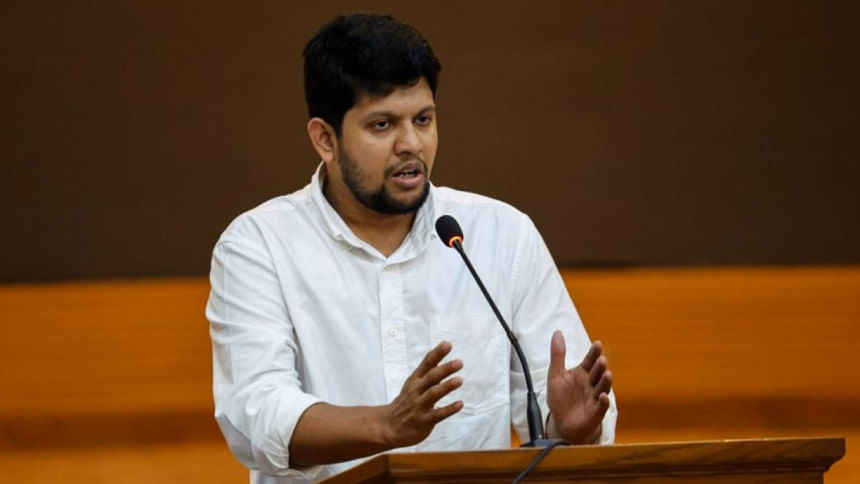Parties ‘eager for conflict’ ahead of polls

Information Adviser Mahfuj Alam yesterday said political parties appear eager for conflict ahead of the upcoming election."And you will see it unfold within a few months," he said at a dialogue titled "Mazar Culture: Violence, Crisis, and Future Thinking" held at BM Bhaban in Dhaka's Segunbagicha.He added that the situation in Bangladesh could worsen if a religious dimension is added to it.The event was organised by Maqam, a research platform focused on the Sufi community, where Mahfuj attended...
Information Adviser Mahfuj Alam yesterday said political parties appear eager for conflict ahead of the upcoming election.
"And you will see it unfold within a few months," he said at a dialogue titled "Mazar Culture: Violence, Crisis, and Future Thinking" held at BM Bhaban in Dhaka's Segunbagicha.
He added that the situation in Bangladesh could worsen if a religious dimension is added to it.
The event was organised by Maqam, a research platform focused on the Sufi community, where Mahfuj attended as the chief guest.
The adviser said that while state-level fascism may have ended, traces of social fascism still persist, warning that without fostering dialogue and connections among the streams of Islam in the country, the state would continue to face uncertainty.
He added that though 90-92 percent of Bangladesh's population is Muslim, the community is divided into different tariqas (orders).
Political leaders, Mahfuj said, have done little to promote unity among them. "Instead, some have aligned with Qawmi groups and others with Sunni groups, using religious institutions as instruments of politics."
He further said several people had been arrested in connection with the attacks on multiple mazars (mausoleum or shrine), and that surveys would soon be carried out to facilitate their renovation.
Urging the management committees of attacked mazars to file cases, the adviser warned that if the current culture continues, one group's version of Islam could target another's places of worship.
"Today it is the Sufis; tomorrow it could be the Qawmi community."
Mahfuj acknowledged a sense of frustration over the lack of progress over the past year, warning that retaliatory actions driven by such resentment would yield no positive outcome.
"Over the past 15 years, an alliance of convenience developed between Sufi circles and the Awami League, despite their earlier ideological differences."
The understanding, he said, was that the AL would offer protection while the Sufis would support the party at the polls. "This dynamic has kept religious politics stagnant."
Mahfuj also observed that the Qawmi groups were no exception, as different political parties have also used them for their own benefit.
He said there have been claims of people being removed from mosques. "This is not unique to the interim government. It has been happening for the past 50 years," he added, pointing out that mosque committees, as well as the Islami Foundation's governing body, tend to change whenever a new government comes to power.